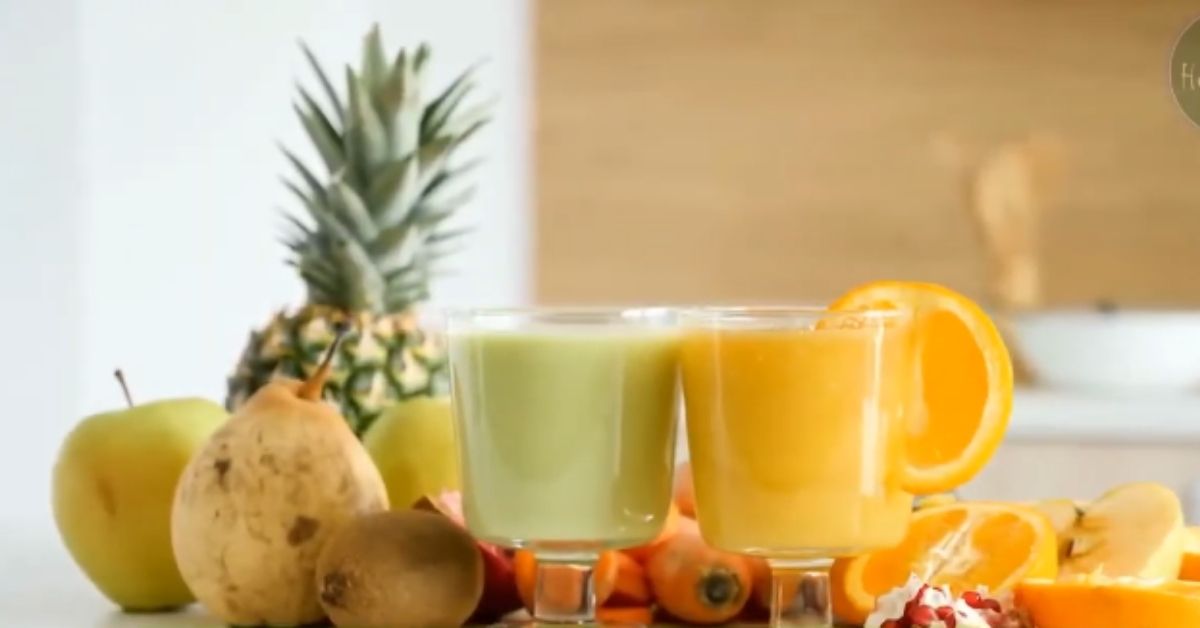Imagine starting your day with a burst of energy that doesn’t aggravate your IBS symptoms but rather soothes your digestive system. Juicing might be the vibrant solution you’ve been searching for. Packed with essential nutrients and easy to digest, fresh juices can be a wonderful addition to your IBS management plan.
Navigating the world of juicing, especially when you have Irritable Bowel Syndrome (IBS), can seem daunting. You need to know which fruits and vegetables will boost your health without causing any flare-ups. In this article, we’ll explore how juicing can help alleviate IBS symptoms and the best ingredients to choose for your juices.
Join us as we dive into the refreshing world of juicing for IBS, where each sip brings you closer to better digestive health. Let’s discover the tasty blends that could transform your diet and your life.
Understanding IBS and Its Challenges
What Is Irritable Bowel Syndrome (IBS)?
Irritable Bowel Syndrome (IBS) is a chronic gastrointestinal disorder that affects the large intestine. Symptoms vary but commonly include abdominal pain, bloating, gas, diarrhea, and constipation. IBS doesn’t cause changes in bowel tissue or increase your risk of colorectal cancer. In many cases, manageable lifestyle changes and diet can significantly control the effects of IBS. Understanding your body’s specific reactions can be key, and incorporating strategies such as juicing may aid in managing symptoms.
Common Triggers and Symptoms of IBS
Identifying triggers for IBS flare-ups forms a crucial aspect of managing the condition. Common triggers include certain foods, stress, hormonal changes, and other environmental factors. Foods that often lead to symptoms include wheat, dairy products, citrus fruits, beans, cabbage, milk, and carbonated drinks.
Symptoms vary widely among individuals but typically involve:
- Abdominal Pain: The most common symptom, often described as a crampy sensation that comes and goes and is usually relieved by a bowel movement.
- Change in Bowel Habits: This might manifest as diarrhea, constipation, or sometimes alternating between the two.
- Bloating and Gas: These symptoms can cause significant discomfort and embarrassment.
Knowing these triggers and symptoms, you can better manage your IBS by avoiding known triggers and incorporating beneficial practices like juicing, which provides vital nutrients without the fibrous bulk that can aggravate IBS.
The Role of Diet in Managing IBS
How Diet Influences IBS Symptoms
Understanding the impact of diet on IBS symptoms is integral in managing this condition. The food you eat can directly affect the severity and frequency of your IBS symptoms. For instance, certain foods can lead to increased gas production, bloating, and either diarrhea or constipation. These reactions are due to the fact that individuals with IBS often have a heightened sensitivity to how their intestines contract during the digestive process.
Foods high in FODMAPs (Fermentable Oligo-, Di-, Mono-saccharides And Polyols), such as onions, garlic, beans, and certain fruits, can draw excess fluid into your digestive tract and may lead to discomfort if you’re sensitive. On the other hand, a diet low in these substances can significantly manage and reduce your symptoms. Drinking freshly extracted juices, which provide nutrients without the fibrous bulk, can be particularly beneficial. They enable you to get the necessary vitamins and minerals without overloading your digestive system.
Identifying IBS-Friendly Foods
Identifying and incorporating IBS-friendly foods into your diet is crucial if you’re looking to alleviate symptoms. Start by introducing low-FODMAP foods that are generally easier for your gut to process. Examples include carrots, cucumbers, lettuce, oranges, and strawberries. These foods are less likely to provoke the symptoms of IBS.
A trial-and-error approach works best, as you’ll need to personalize your diet based on your body’s reactions. Keeping a food diary can be incredibly helpful; it allows you to track what you eat and how it affects your symptoms, helping you pinpoint which foods to avoid. Integrating juicing into your diet can also be effective, as it allows you to consume essential nutrients without aggravating your gut. Opt for juices that blend well-tolerated vegetables and fruits to create a nutritious, gut-friendly drink.
Benefits of Juicing for IBS
Nutritional Advantages of Juicing
Juicing offers substantial benefits for managing Irritable Bowel Syndrome (IBS) by tailoring nutrient intake without stressing your digestive system. This liquid form of fruits and vegetables ensures you receive a high concentration of vitamins and minerals. These nutrients are essential for maintaining the health of your gut lining and overall digestive health. Additionally, juicing removes most of the fiber, which, although normally beneficial, can exacerbate symptoms in IBS sufferers if consumed in large quantities. By juicing, you’re able to absorb nutrients quickly and give your gut a rest from processing solid fibers, leading to reduced gastrointestinal irritation.
Specific Juices That Benefit IBS
Certain juices stand out as particularly beneficial for those dealing with IBS. For example, carrot juice not only provides a rich supply of vitamin A and other antioxidants but also contains nutrients that can help reduce inflammation in the gut. Ginger juice is another excellent choice; it promotes digestion and acts as a natural anti-inflammatory, which can soothe the digestive tract. Low-FODMAP choices like cucumber and grape juice are also excellent for IBS patients, as they are less likely to trigger symptoms. Introducing these specific juices into your diet can help manage the discomfort and flare-ups associated with IBS. Remember, it’s important to introduce new juices slowly and monitor your body’s response.
How to Start Juicing for IBS
Juicing offers a way to manage Irritable Bowel Syndrome (IBS) symptoms through controlled, nutrient-packed beverage choices. Get started by selecting the right equipment and preparing juices that cater to your digestive needs.
Choosing the Right Juicer
Purchasing a suitable juicer is the first step in your juicing journey for IBS management. Masticating juicers, also known as slow juicers, are ideal. They operate at a lower speed, reducing heat build-up and oxidation, preserving the enzymes and nutrients crucial for IBS management. Due to their efficiency in extracting juice from leafy greens and fibrous vegetables, these juicers help you get the maximum benefits from low-FODMAP ingredients.
Consider factors like ease of cleaning, noise level, and durability when selecting your juicer. Brands like Omega and Hurom offer models that are popular in the health community for their reliability and effectiveness.
Recipes for IBS-Friendly Juices
Creating juices that support digestive health without triggering IBS symptoms involves using ingredients low in FODMAPs. Here are two recipes to start with:
- Carrot Ginger Juice:
- Ingredients: 4 large carrots, 1 inch of fresh ginger root, 1/4 lemon (optional for a tangy twist).
- Directions: Wash and peel the carrots and ginger. Juice all the ingredients together. Serve chilled for a refreshing, soothing beverage.
- Cucumber Grape Juice:
- Ingredients: 1 large cucumber, a handful of green grapes, a few mint leaves for an extra burst of freshness.
- Directions: Thoroughly clean the cucumber and grapes. Juice these along with mint leaves. Enjoy this hydrating juice, which is gentle on the stomach and rich in hydration.
Start experimenting with these recipes, bearing in mind that everyone’s tolerance varies. It’s important to monitor how your body reacts to each new juice, adjusting ingredients as needed to accommodate your IBS. Regularly consuming tailored juices can lead to improved symptom management and a better quality of life.
Precautions and Tips for Juicing
Managing Fiber Intake
Managing your fiber intake is crucial when juicing for Irritable Bowel Syndrome (IBS). Juicing removes most of the fiber from fruits and vegetables but retains the nutrients. This can be beneficial if your gut is sensitive to fiber. However, fiber plays a key role in digestive health, so striking the right balance is essential.
- Opt for Low-FODMAP Juices: Begin with juices that minimize the risk of intestinal discomfort. These include juices made from ingredients like carrots, cucumbers, and grapes.
- Gradually Introduce Fiber: Slowly add small amounts of fiber back into your diet to help your digestive system adjust without triggering symptoms. You might start by incorporating small amounts of pulp back into your juices.
- Monitor Your Response: Keep track of how your body responds to different levels of fiber in your juices. This will help you tailor your juicing regimen to support your specific digestive needs.
Important Considerations and Tips
When juicing for IBS, there are several important considerations and tips that need attention to ensure that juicing benefits rather than harms your health.
- Hydration: Juicing concentrates certain nutrients, increasing their potency, but it also means consuming less liquid from the whole fruit or vegetable. Ensure you stay hydrated by drinking plenty of water throughout the day.
- Moderation: Although juicing can provide essential vitamins and minerals, it’s not a complete dietary solution. Include a variety of other foods in your diet to ensure you get a balanced intake of nutrients.
- Juicer Type Matters: Use masticating juicers when possible. They operate at slower speeds, thereby preserving the nutrients and enzymes in fruits and vegetables far better than centrifugal juicers.
- Consult Healthcare Providers: If you’re unsure about starting a juicing regimen or if specific juice ingredients could affect your IBS symptoms negatively, consult with a healthcare provider or a dietitian. They can provide guidance tailored to your health condition.
By following these precautions and tips, you’ll better manage your IBS symptoms through juicing, improving your overall health and wellbeing.
Conclusion
Juicing offers a promising avenue for managing your IBS symptoms effectively. By focusing on low-FODMAP and gut-friendly juices you can tailor your nutrient intake to support your digestive health while minimizing discomfort. Remember it’s crucial to listen to your body and adjust your juicing habits to suit your individual needs. Whether you’re experimenting with different recipes or sticking to your favorites ensure you’re consulting with healthcare professionals to maintain a balanced approach. Embrace juicing as part of your lifestyle and you might just find the relief and well-being you’ve been seeking.
Related Posts:
- Unlocking the Amazing Health Benefits of Juicing Pears: Tips & Recipes
- Top 10 Benefits of Juicing: Boost Health with Every Sip
- Beginner’s Guide: How to Incorporate Juicing Into Your Diet for Health
- Explore the Advantages of Cold Pressed Juice: Health and Eco-Benefits
- Juicing for IBS Relief: Best Practices and Effective Juices
- Ultimate Guide to Juicing for Inflammation: Tips, Ingredients & Techniques
- Top Immune System Boost Juice Recipes for Vibrant Health
- Boost Your Eye Health: Ultimate Guide to Juicing for Vision
- Top Juicing Recipes for Heart Health: Boost Your Cardio with Nature’s Best
- Does Orange Juice Cleanse Your System? Debunking Detox Myths


